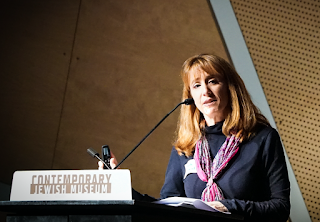 |
| Sam Piha |
What Is the Connection Between Social and Emotional Learning and Employability?
(January 19, 2016)
Recently, the Office of Career, Technical, and Adult Education (OCTAE) developed an employability skills framework and created a website to assist educators and youth workers with tools to promote these skills in their settings. Read more.
Mindfulness in Afterschool (February 22, 2016)
There is a growing trend in research and practice that shows that mindfulness is a very useful tool in school-based settings but few have translated this into afterschool programs. Temescal Associates has developed a 16-week mindfulness curriculum for afterschool workers and a two-day training – one day for the use of mindfulness techniques for the self-care of adult staff, and one day for staff who will lead young people in mindfulness activities. Read more.
 Understanding Gender Identity: An Interview with a Child Development Specialist, Part 1 (March 18, 2016)
Understanding Gender Identity: An Interview with a Child Development Specialist, Part 1 (March 18, 2016)There is a growing awareness in our society that gender is more than the sex that is assigned at birth. Gender identity is no longer an esoteric concept for child development experts. The importance of understanding gender identity is increasingly important for educators and leaders of youth programs. Read more.
Preparing Youth for Work and Career Success (June 27, 2016)
I first met Bill Fennessy when he innovated a new high school afterschool program in Pasadena, CA. Bill was part of the first run of ASSETs programs - before people knew what high school afterschool was. He subsequently joined THINK Together as their Director of Community Engagement. Read more.
Why "All Lives Matter" is Controversial (July 27, 2016)
We have all heard people respond to the phrase Black Lives Matter, with the phrase All Lives Matter. This has led to controversy, but many people do not understand why. Read more.
The Year of Living Dangerously (November 17, 2016)
The last year has been one of incredible violence and hate speech. Much of this has been graphically reported in the media and has greatly effected young people. There have been a series of mass killings in Charlotte, Orlando, San Bernardino, Paris and elsewhere. There have been a number of shootings by the police of unarmed civilians captured on video. Read more.
 The Importance of the Arts
The Importance of the Arts (December 8, 2016)
We know that the arts in all forms (digital arts, performing arts, fine arts, etc.) and art making is important in the healthy development of children and youth, in fact our whole society. Art making is truth telling and provides all youth, especially those without a voice, an opportunity to express themselves. Read more.















